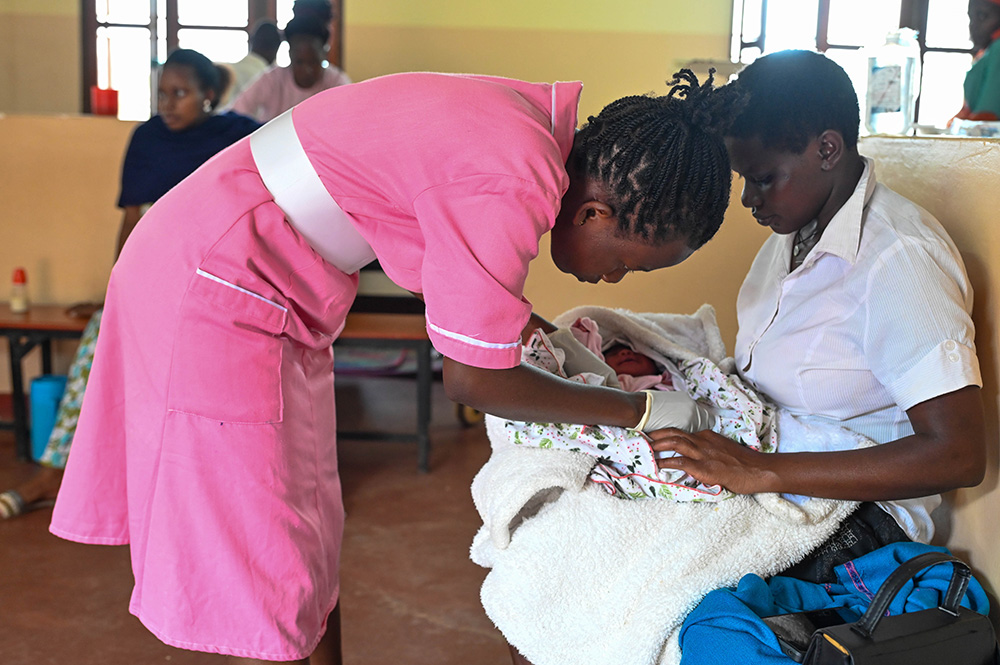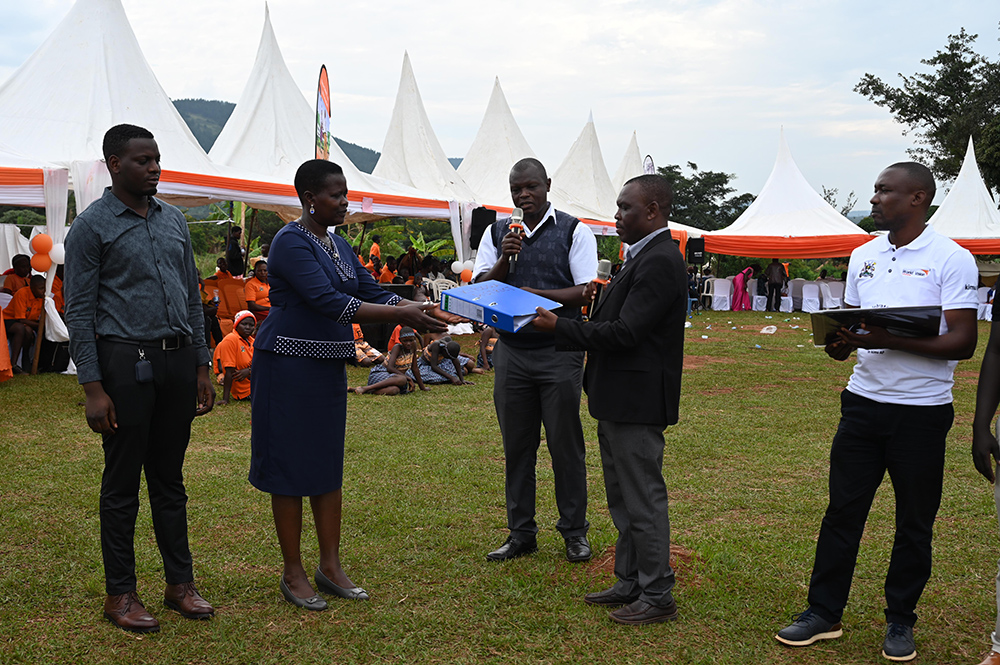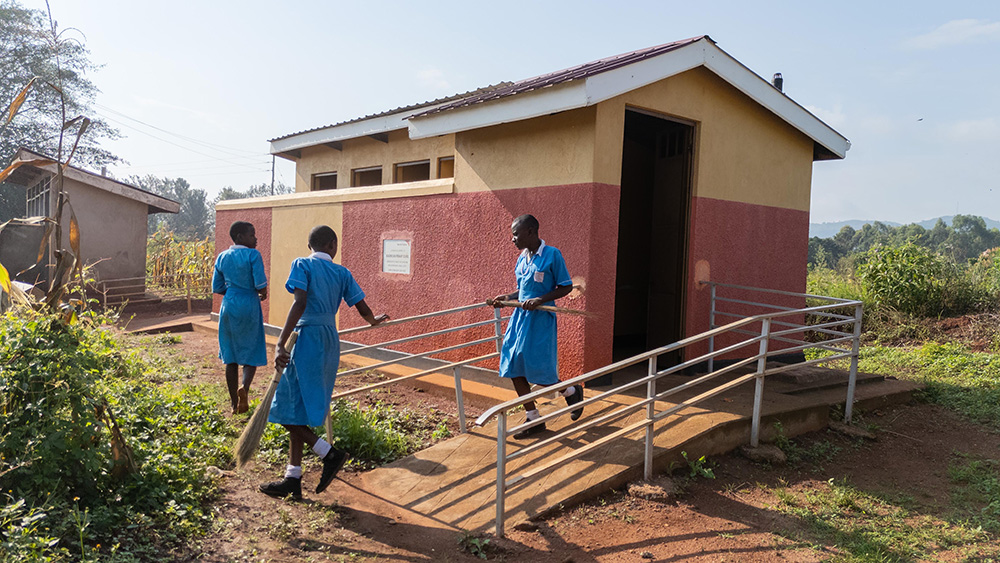Sh16 billion investment brings lasting transformation to thousands in Kiboga
“Over the past 20 years, World Vision interventions have touched nearly every aspect of life in Kiboga, including education, child protection, health, nutrition, water and sanitation, livelihoods, and child sponsorship.”
Happy children captured fetching water at one of the water points built by World Vision in Kiboga District. (Courtesy photo)
By John Musenze
Journalists @New Vision
__________________
In the early 2000s, Kiboga district was among the areas worst affected by poverty. School dropout rates were high, hospital visits frequent, health services limited, and many families struggled to meet even the most basic needs. Schools lacked proper classrooms and desks, sanitation was poor, and awareness of health issues such as HIV/AIDS was alarmingly low.
It was in this environment that Flavia Mirembe grew up. The fourth of seven children in a peasant farming family, her father could barely afford her school fees or provide scholastic materials.
Yet, despite these challenges, Mirembe’s dream of pursuing an education and becoming a valuable member of her community was kept alive through the support of World Vision, whose programmes reached thousands of vulnerable children in Kiboga.
Today, at just 25 years old, Mirembe is a qualified midwife working at Bukomero Health Centre IV.
Flavia Mirembe, now a midwife Bukomero Health Centre IV, is one of the thousands of children that benefited from World Vision programmes.(Courtesy photo)
At the closing ceremony of the programme on August 31 at Kiryanongo Primary School in Kiboga district, Mirembe reflected on her childhood struggles.
“There were days when I thought my education would end early because my parents couldn’t afford school fees or even a uniform. But I was given hope when I became a sponsored child. I received school requirements, mentorship and encouragement, which pushed me to keep working hard,” she recalls.
Today, Mirembe leads maternal health and malnutrition outreach in the very community where she once feared her future was lost.
“Every time I help a mother deliver safely, I remember how someone once gave me a chance. That is why I am giving back,” she says with a smile. “When I see children carrying books to school, I know things have changed. I was once in their place, and now I am here to give back. That is what transformation means.”
According to James Kaahwa, director of programmes at World Vision Uganda, this transformation was always the organisation’s vision.
He noted that it was against the difficult background in the region that World Vision Uganda, a faith-based organisation, launched the Kibiga-Mulagi and Ntwetwe area programmes.
“Over the past 20 years, their interventions have touched nearly every aspect of life in Kiboga, including education, child protection, health, nutrition, water and sanitation, livelihoods, and child sponsorship,” Kaahwa reflected.

James Kaahwa Programmes Director at world Vision handing over documents to the Chief administration officer of Kiboga District and other district officials. (Courtesy photo)
“We are delighted with how far we’ve come. Our partnership with communities and local authorities has fostered holistic, transformational development. We leave behind a legacy of empowered children and resilient communities as we move to greater paradigms,” he added.
Kaahwa reported that with an investment of sh16 billion, the programme has directly reached more than 60,000 people in five sub-counties. At least 8,543 children were registered under sponsorship, receiving not just school materials but also emotional support and mentorship to help them realise their potential.
The impact is clear in schools such as Kiryanongo Primary School. Teacher Deus Mubangizi, who joined the school in 2012, remembers when things were bleak.
“When I started, we had only 52 children. There were no proper classrooms or latrines, and learners were discouraged,” he recalls.
Today, the school boasts a new classroom block, improved pit latrines, and a population of 500 pupils.
Doreen Nampijja, a Primary Six pupil and head prefect, is among the beneficiaries of this transformation.
“I am very happy because we have good desks, water, and clean latrines. I want to be a doctor because I am learning well here,” she says confidently.
Beyond education, the programmes have supported clean water sources, strengthened health facilities, and empowered families through farming and livelihood projects. Communities have also been trained to sustain progress, ensuring that the gains will last long after the programme ends.
District community development officer Patrick Nsubuga confirms the progress.

One of the toilets built by World Vision to enforce the WASH program at Kiryanongo Primary School. (Courtesy photo)
“World Vision’s commitment has greatly improved child well-being in Kiboga. Their work in water, education, and health has transformed our district, and their support in capacity building has been invaluable,” he notes.
He adds that one of the most important aspects has been community ownership, achieved by working closely with sub-county and district leaders, cultural and faith institutions, and schools.
As World Vision Uganda marks 20 years in Kiboga, Nsubuga noted that the results are written in the lives of children like Mirembe, who now saves mothers and newborns; in Nampijja, who dreams of becoming a doctor; and in countless families who now have clean water, better health services, and brighter opportunities.